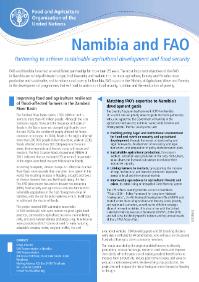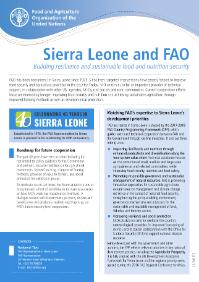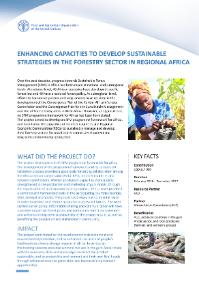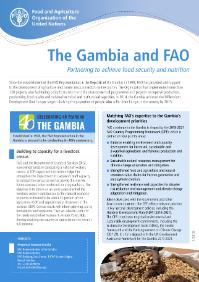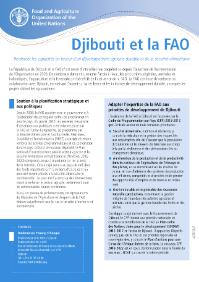Namibia and FAO
FAO and Namibia have had an established partnership for more than 25 years. The most important objectives of the FAO
in Namibia are to help eliminate hunger, food insecurity and malnutrition; to make agriculture, forestry and fisheries moreproductive and sustainable; and to reduce rural poverty. In Namibia, FAO supports the Ministry of Agriculture, Water and Forestryin the development of programmes that will lead to sustainable food security, nutrition and the eradication of poverty.
